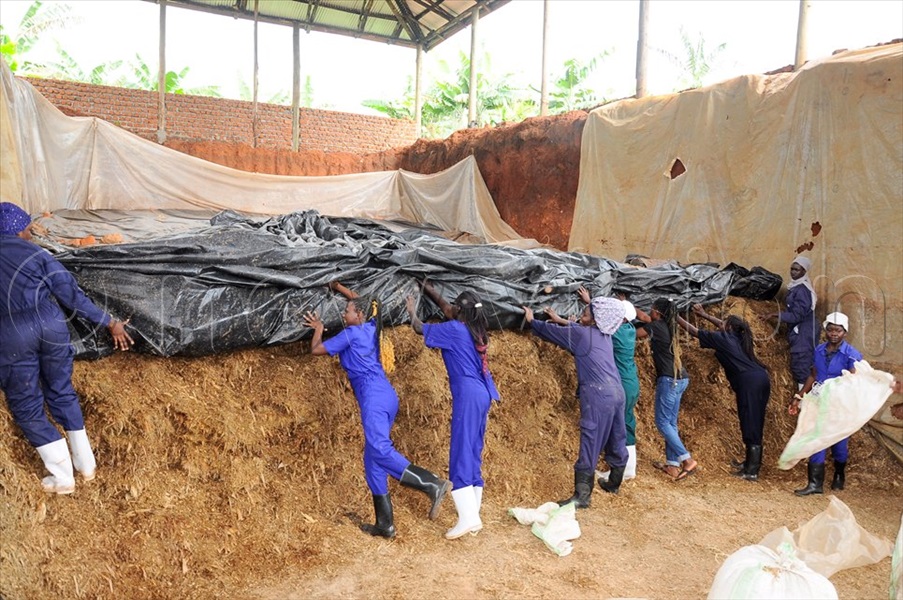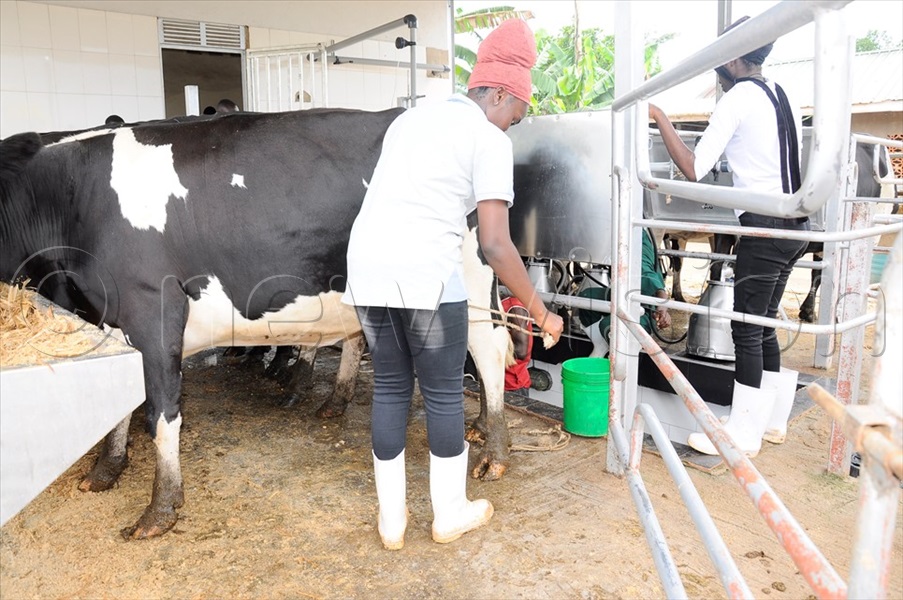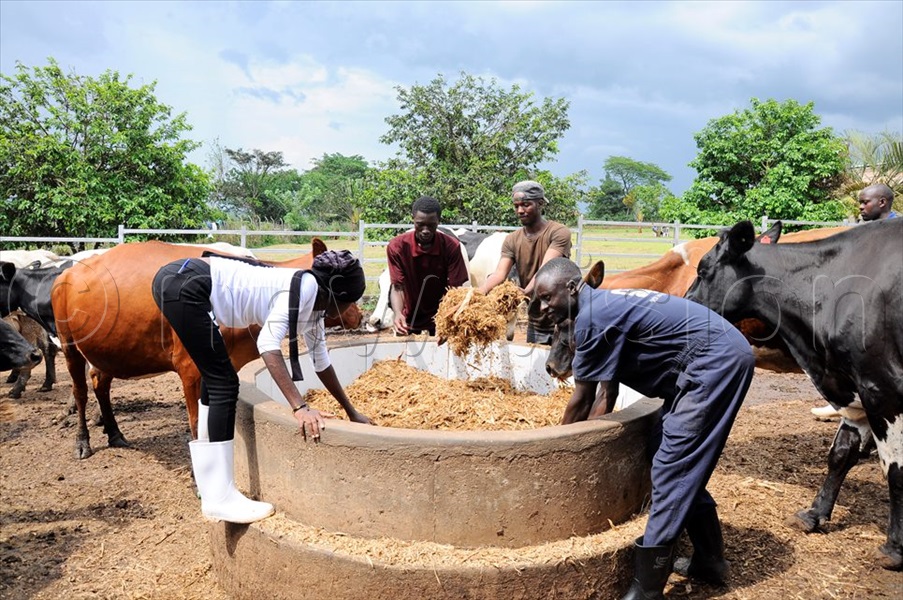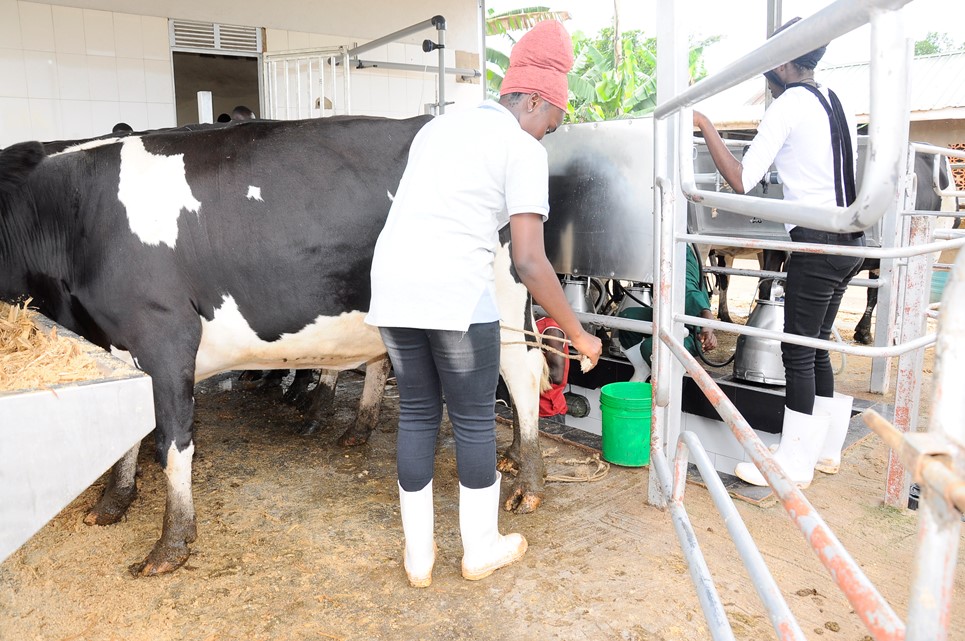By Umar Nsubuga
In the minds of most youth, farming is a venture for failure.
However, the turn-out of young people, eager to acquire entrepreneurship and farming skills, at a month-long internship in Manyama, Zirobwe Luwero district, shows that this is changing.
“For many years, young people have considered agriculture as a job for the uneducated and the unlucky ones who are unable to go to school. Supporting young people who appreciate agriculture as a business and means of livelihood is a worthy cause,” said Ruta Sabastian Ngambwa, the director Prime Agro Uganda Limited.

According to Ngambwa, through activities like doing internships on big farms like Prime Agro farms the importance of agriculture is being realised and a new kind of students who can meet the technical demand are being trained.
A total of 120 students are trained by Prime Agro farms experts.
The students who did not take agriculture seriously were exposed to high-technology farming through field visits in different locations.
During the four weeks internship, students inspect different farms and do different activities at commercial silage banks and storage, the milking unit which is fully equipped with vacuum milk units linked to the cooler, feeding units and resting shed that are cleaned twice a day.

Students visit different projects and after touring them, they are trained by the project heads, they are trained in disease and pest management, farm mechanisation, organic farming and farm management.
Ronald Kamukama, the assistant manager, said the students’ trainings aim at improving the academic performance of the students while at higher institutions, have targets in their lives and also take agriculture as a business.
Kamukama also says such trainings help the students introduce high-tech modern farming methods to their parents and be able to initiate income-generating projects like poultry and pig keeping among others.
“With the right guidance, our students can harvest the money they save by purchasing land of their own and expanding their agricultural projects. Nothing, however, can be more powerful than youth engaging youth,” he adds.

“The youthful students we talked to after these trainings express the need to highlight success stories from the youth who are currently involved in agriculture and provide a platform for these youth to speak to their generation. The youth will be more receptive and willing to follow suit if they hear their peers sharing their success,” Ngambwa advises.
Alex Nuwagaba, a student at Bukalasa says this kind of internship helps him to appreciate the farming skills applied because he is becoming an expert in agriculture, though not yet practical.
“I have realised that agricultural production does not require thousands of acres to get profits, but it just needs proper utilisation of available resources and value addition to boost the income,” Nuwagaba says.

Harriet Nabirye, a diploma student, says she is now a changed person because she learnt by practising.
“I am now looking at agriculture as a business and so I shall have a starting point on return,” she says.
In general, the students say the internship training has changed their outlook on agriculture. They will be able to save some money from their earnings on the farms, and this will improve their lives.
Good initiative
One of the farm leaders, Paul Tushabe noted that there is a trend of the youth preferring to engage in activities where they can earn quick money.
Ngambwa says they train many people, not only students, “there is a need to teach and encourage farmers to adopt better postharvest handling, diary production and storage technologies. These will help them improve their food security and incomes,” he says.
He says Prime Agro has trained over 2,000 farmers in the country on good agronomic practices, good post-harvest handling and agro-processing technologies, inputs and market linkages that can enable them to manage the value chain of selected crops.
“We need to teach students, youth and people about many things most especially dairy farming because even with small space you can have at least one cow on zero grazing. Even on other things, students and village people can understand that food losses occur during harvest, drying, threshing/ shelling, grading/cleaning, storage, transportation and marketing,” he said.
Ngambwa says when students come here for internships they are allowed to “touch anything”. After all, we want them to go with the knowledge because all our trainings are hands-on.
“If you are to deny them the chance to use your equipment, then how will they get the experience? These are the same students you are going to ask to apply for your jobs and ask for their experience,” Ngambwa said.
He advised other companies or factories to make follow-ups to find out if students are getting practical skills from the internship placements.
“It is useless for an institution to send out students to train in organisations to gain experience and skills yet they are not trusted. Gaining skills means using your eyes, touching among others,” Ngambwa said.
Ngambwa says their work is based on the positive attitude of young people.
“We see youth as change agents in their communities. We know that the future belongs to the youth, we even teach them how to handle finances,” he adds.





